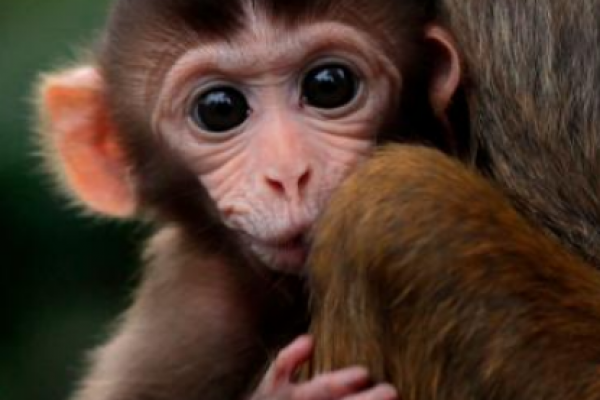Chinese scientists defend implanting human gene into monkeys' brains
A Chinese researcher who sparked improved cognitive function in monkeys by implanting human genes into their brains has defended his experiment, which has divided the scientific community.
A Chinese researcher who sparked improved cognitive function in monkeys by implanting human genes into their brains has defended his experiment, which has divided the scientific community.
The research, undertaken by multiple universities and led by the Kunming Institute of Zoology in southwestern China, was intended to shed more light on the evolutionary process which led to human intelligence.
"Brain size and cognitive skills are the most dramatically changed traits in humans during evolution, and yet the genetic mechanisms underlying these human-specific changes remain elusive," said a report published on March 27 in the China-based journal National Science Review.
The research paper said it was the first time such a study had taken place.
Analysis of the monkeys' behavior and physiology showed they developed in a more human-like fashion, with better short-term memory and a faster reaction time compared to a control group.
Their brains also took longer to develop, in a similar fashion to humans.





Related Posts